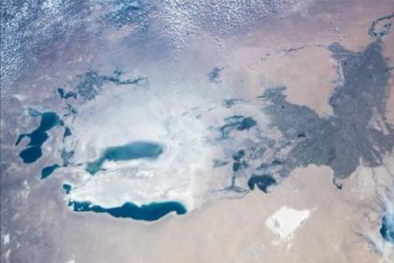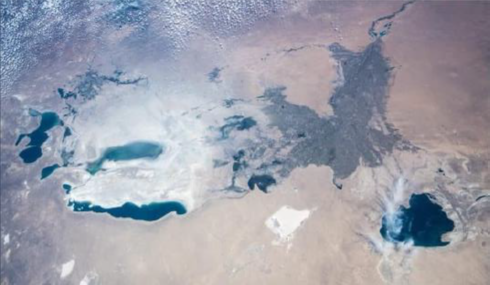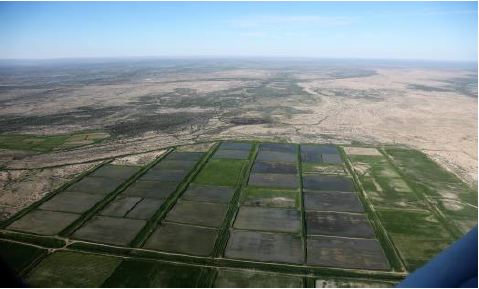
Supporting cross border economic development for better livelihoods and ecological sustainability of the Aral Sea region
Challenge
Within four decades (1980-2019) temperature anom-aly in the Aral Sea region has reached 1.27 Co, with sig-nificant higher temperatures and less precipitation in summer. Nevertheless, most of the rural population of the Aral Sea region still lives from irrigated agriculture, even though conditions are continually deteriorating due to overuse of soil and water. All this leads to the drying of the lake.
In the last years, Kazakhstan and Uzbekistan began to diversify their economies through infrastructure development, promotion of innovation, economic liberalization, and reduced subsidies for water- intensive crops. Yet, large sections of the rural population in the Aral Sea region are hardly benefiting from the economic growth of the last four years in Uzbekistan (about 5 % annually) and Kazakhstan (about 4 %). There are considerable differences in prosperity between urban and rural areas as well as between regions. It remains difficult for rural land users to create profitable alternatives to their traditional and water-intensive income generation ways.
With a lack of consideration of ecological aspects and little cross-border cooperation, the Aral Sea region’s ecologically sustainable economic development is threatened.
Our approach
By pairing investments with an ecological perspective and planning, the project will contribute to a sustainable and resilient economic development of the Aral Sea region and improve the population’s livelihoods. Especially planning processes using remote sensing and the introduction of advanced planning tools will enhance environmental sustainability.


L. to r.:
Image of the Aral Sea from the International Space Station in July 2018;
Aerial photo of irrigated agricultural fields
Photos: © IFAS Uzbekistan / IFAS Kazakhstan
Beneficiaries
Through direct and indirect impacts, the project’s work focuses on Kazakhstan’s and Uzbekistan’s population living around the Aral Sea, which combines to 2 million people. Direct beneficiaries of the project’s measures are farmers, owners of Micro, Small and Medium Enterprises (MSME), local forestries and cadaster agencies.
Indirectly, the whole Aral Sea Region in both countries will benefit of the support and cooperation:
Karakalpakstan, the Uzbek side of the Aral Sea region, inhabits about 1.6 million people. The neighboring Khorezm region occupies 1.8 million people with a heavy focus on agriculture. In Kazakhstan, east of the Aral Sea in the Kyzylorda region, live 800.000, whereas in the western Mangistau region live another 700.000 people.
Partners
The Regional project ‘Ecologically oriented regional development in the Aral Sea’ is commissioned by the Federal Ministry for Economic Cooperation and Development (BMZ) and implemented by Deutsche Gesellschaft für internationale Zusammenarbeit (GIZ) GmbH.
The project supports the governments of Kazakhstan and Uzbekistan to ensure an ecologically sustainable economic development of the Aral Sea region across borders.
The project partners are regional administrations (the Government of the Republic of Karakalpakstan and Khokimiyat of Khorezm region, Akymats of Kyzylorda and Mangistau regions and selected districts), national authorities and ministries of both countries and other regional technical authorities in the Aral Sea region.
Intended results
- 60 % of 120 Uzbek and 80 Kazakh MSMEs (25% run by women) will have taken advantage of project-supported advisory services on ecologically sustainable economic development and increased their resource efficiency by 30%;
- Ten measures using spatial planning instru-ments or procedures based on earth- observation for ecologically sustainable resource use will be implemented, of which four will be cross-border measures;
- New or updated policies/strategies for ecologically oriented regional development in the Aral Sea region agreed between Kazakhstan’s and Uzbekistan’s responsible regional administrations across borders in 5 economic sectors.

